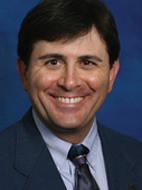This course will equip practitioners with the latest evidence-based protocols in caries management. When should you open a caries lesion, and when should you not? Do radiographs alone dictate the treatment of your patient? Cavitation is the most important factor when deciding to enter a lesion. Treatment of shadows under the enamel surface will also be discussed.
The International Caries Detection and Assessment System (ICDAS) is not as well known in North America as it is all over the rest of the world. This system is very helpful in diagnosing caries lesions, and helping dentists decide how to treat a lesion, by category and tooth surface. Examples of lesions will be shown, to bring you up to speed.
Deep caries lesions will be addressed in detail. There is a growing body of evidence that aggressive caries removal should be avoided. Maintaining a healthy pulp can avoid a lot of problems down the road. Differentiating between the necrotic layer of the caries lesion and the vital, healthy layer of the lesion will be discussed. Root caries and sandwich restorations will be included. Repairing failing restorations, as opposed to removing the entire restoration, will be explored, including step-by-step guidelines.
The caries process will be explored, and preventive measures will be discussed. Caries Risk Assessment will be addressed, using many actual cases. Confounding factors will be illustrated. Preventive measures, including plaque removal, fluoride, silver diamine fluoride, sugar alternatives, sealant materials, and non-invasive remineralization options will all be discussed. Engaging your patients in diet analysis will also be highlighted.
This fast-paced, entertaining course will send you back to your practice with a new kick in your step!

